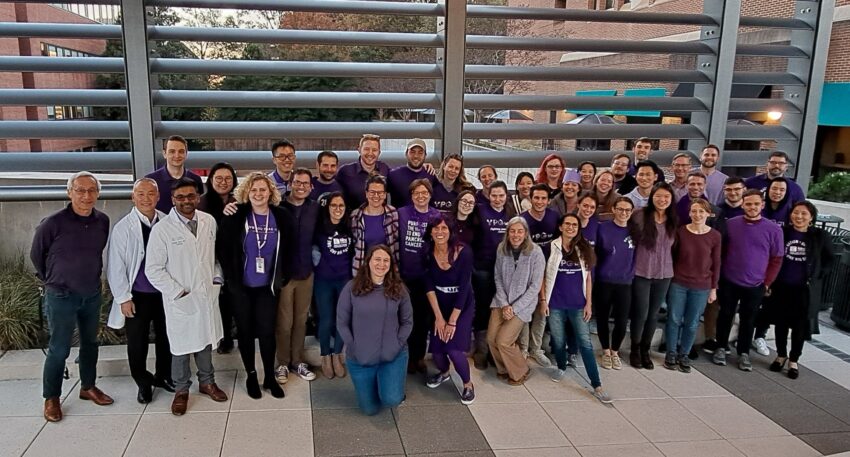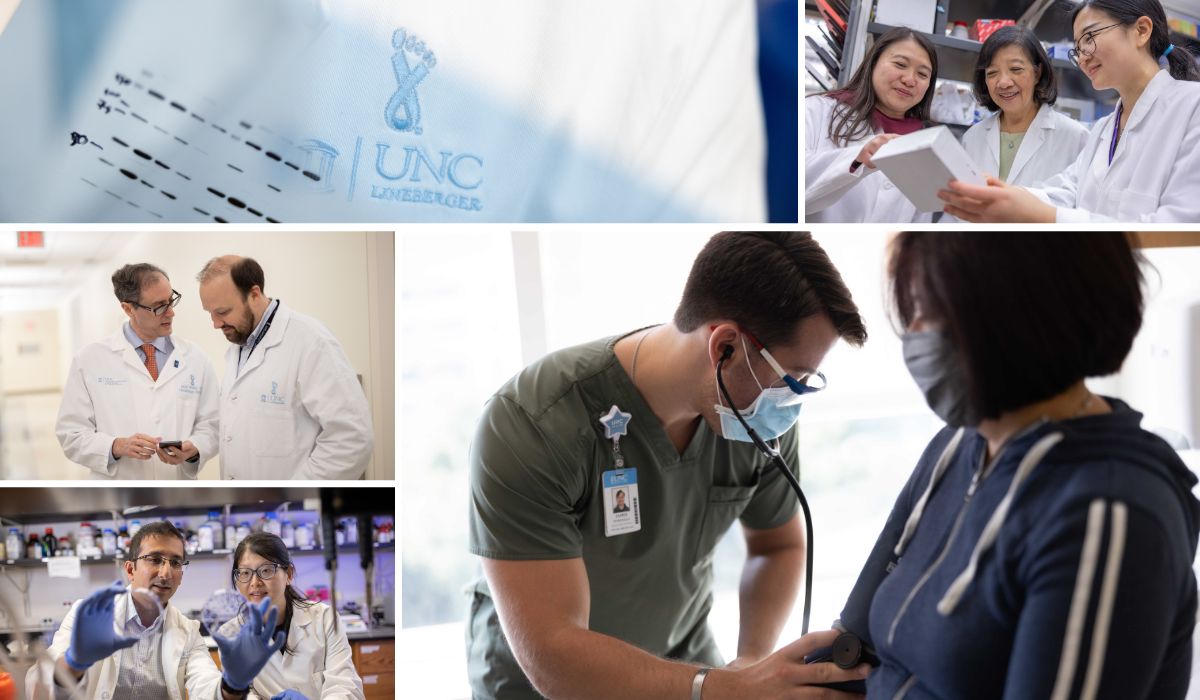
What does a year look like for the UNC Lineberger Comprehensive Cancer Center?
It’s new discoveries and cutting-edge research that bring new cancer treatments to our clinics. It’s compassionate and personalized patient care. It’s the many inspiring stories of strength, innovation, curiosity and hope lived by our patients and their families, and our physicians, researchers and staff.
As we prepare to enter a new year, we look forward to telling many more stories of hope and healing. We look forward to sharing the next big breakthrough in cancer research and treatment. And, most importantly, we look forward to growing and continuing to serve as a beacon of cancer care and research in North Carolina and beyond.
Join us as we reflect on stories from 2022 that inspired us throughout the year.
UNC Lineberger pancreatic cancer therapy studies backed by 5-year, $10.9 million NIH SPORE grant
The National Cancer Institute awarded the UNC Lineberger Pancreatic Cancer Center of Excellence a five-year, $10.9 million Pancreatic Cancer Specialized Program of Research Excellence (SPORE) grant. SPORE grants are highly competitive – and highly coveted – sources of funding that support basic and clinical/applied research focused on discovering and developing with new approaches to the prevention, early detection, diagnosis and treatment of human cancers.
The grant’s principal investigator is Jen Jen Yeh, MD, professor of Surgery and Pharmacology and director of the UNC Lineberger Pancreatic Cancer Center of Excellence. “Dr. Yeh and her team are taking creative steps toward the development of novel therapeutic approaches and that ambitious, thoughtful approach was recognized by NCI and its review body with this major award,” said UNC Lineberger Director Shelley Earp, MD. “This pancreatic SPORE will be one of only two in the country, a tribute to Dr. Yeh and her UNC Lineberger team and their collaborators. Their fundamental science will be translated into hope for our patients and their families.”
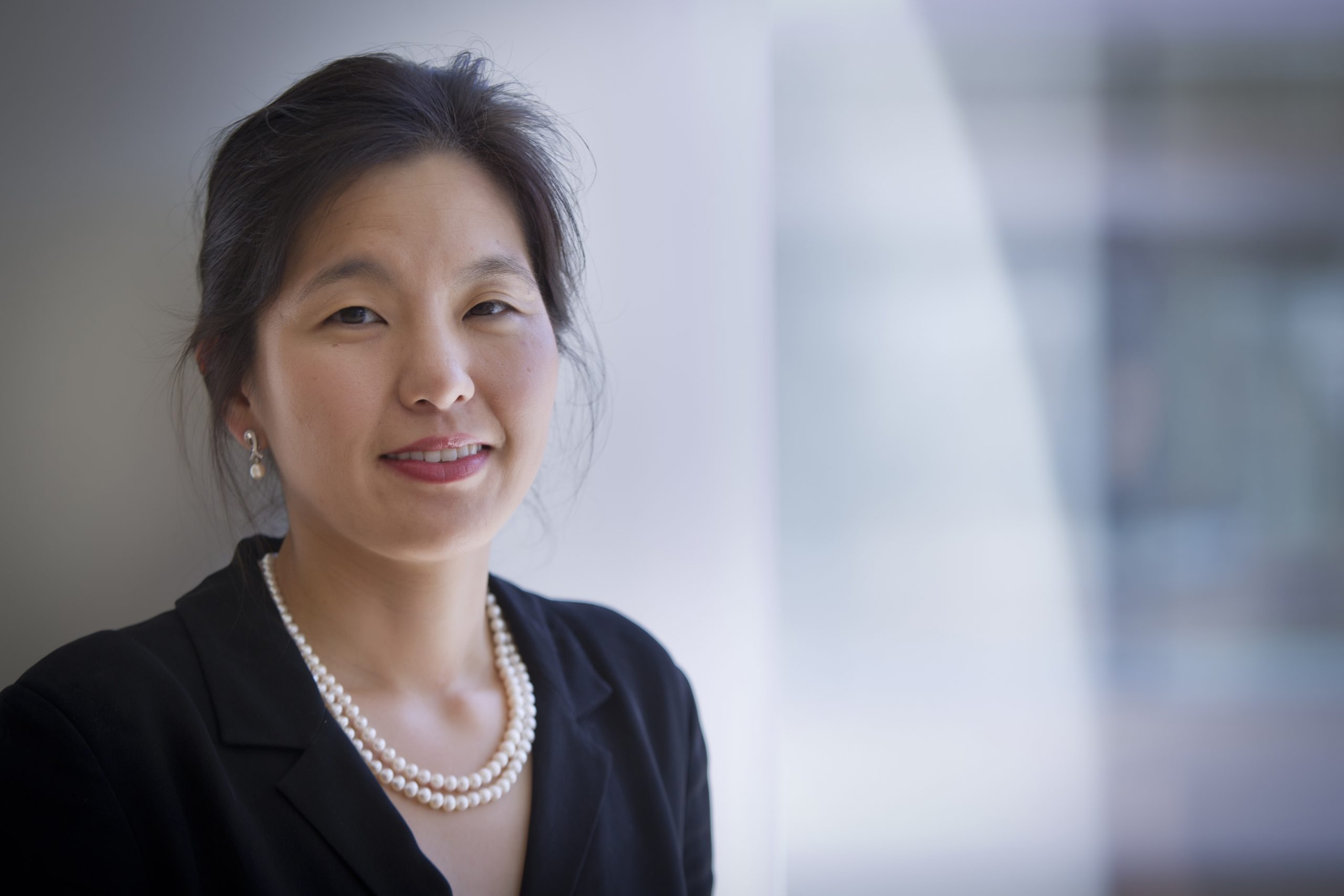
“Support from the NCI allows our team and collaborators from seven institutions to implement novel approaches and develop the types of clinical trials that will help us surmount the challenges that we face in our fight against pancreatic cancer.”
—Jen Jen Yeh, MD

N.C. Cancer Hospital to carry name of late Senator Marc Basnight
North Carolina’s state cancer hospital now bears the name of one of its most influential and dedicated supporters. As a tribute to the legacy of the late Marc Basnight, the former state senate president pro tempore who passed away in 2020, the building was officially renamed the North Carolina Basnight Cancer Hospital.
The state’s longest-serving legislative leader, Basnight was instrumental in the opening of the hospital, drawing inspiration from doctors, researchers, patients and caregivers he met during his wife Sandy’s battle with cancer. UNC Lineberger’s University Cancer Research Fund, its Biomedical Research Imaging Center and the hospital itself are all a direct result of his unwavering focus on bettering the lives of the people of North Carolina.
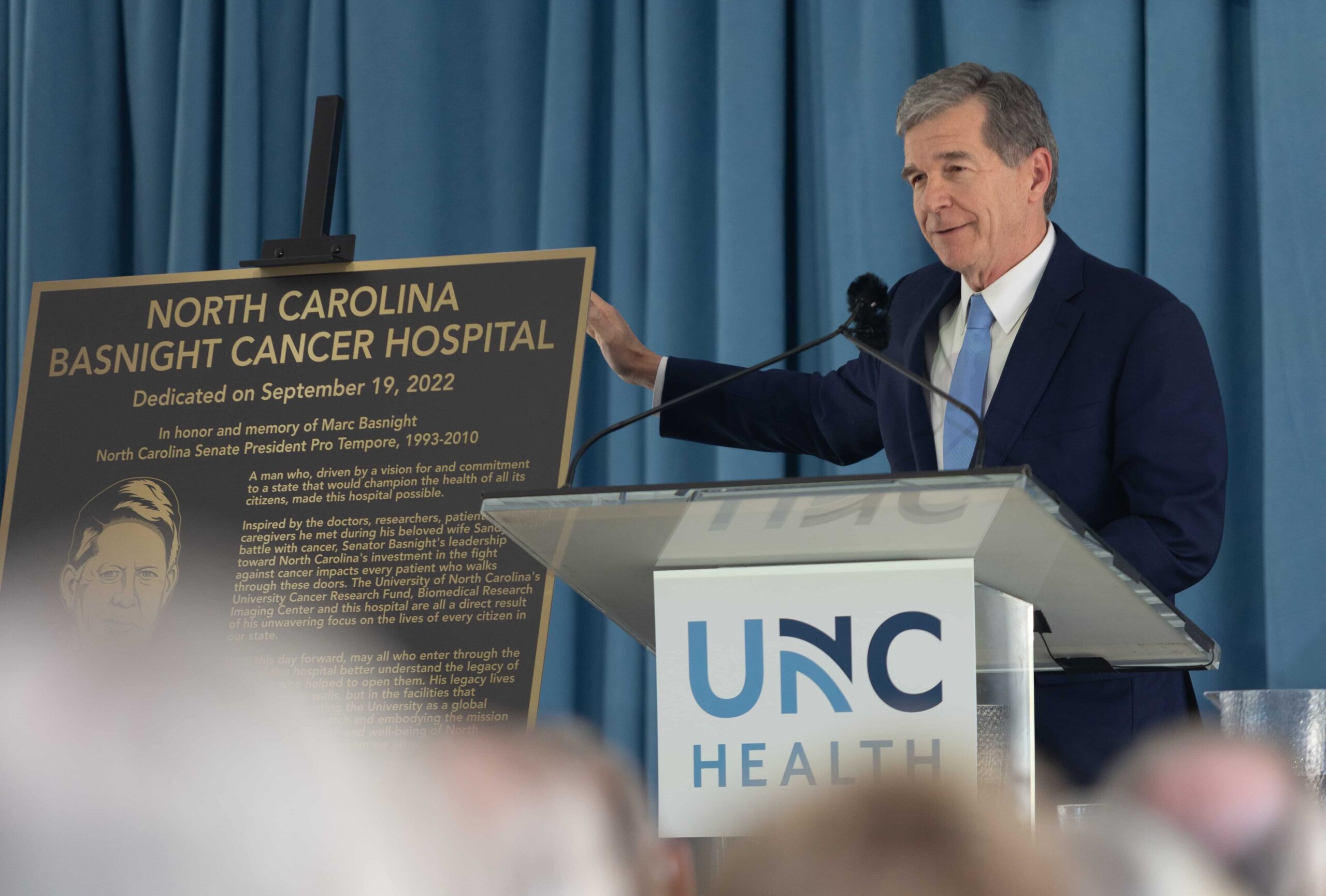
“When people faced challenges, big or small, my friend Senator Basnight was ready to help,” Governor Cooper said. “He had a relentless drive to make North Carolina its best, and this cancer hospital is a part of his tremendous legacy in our state.”
—Governor Roy Cooper
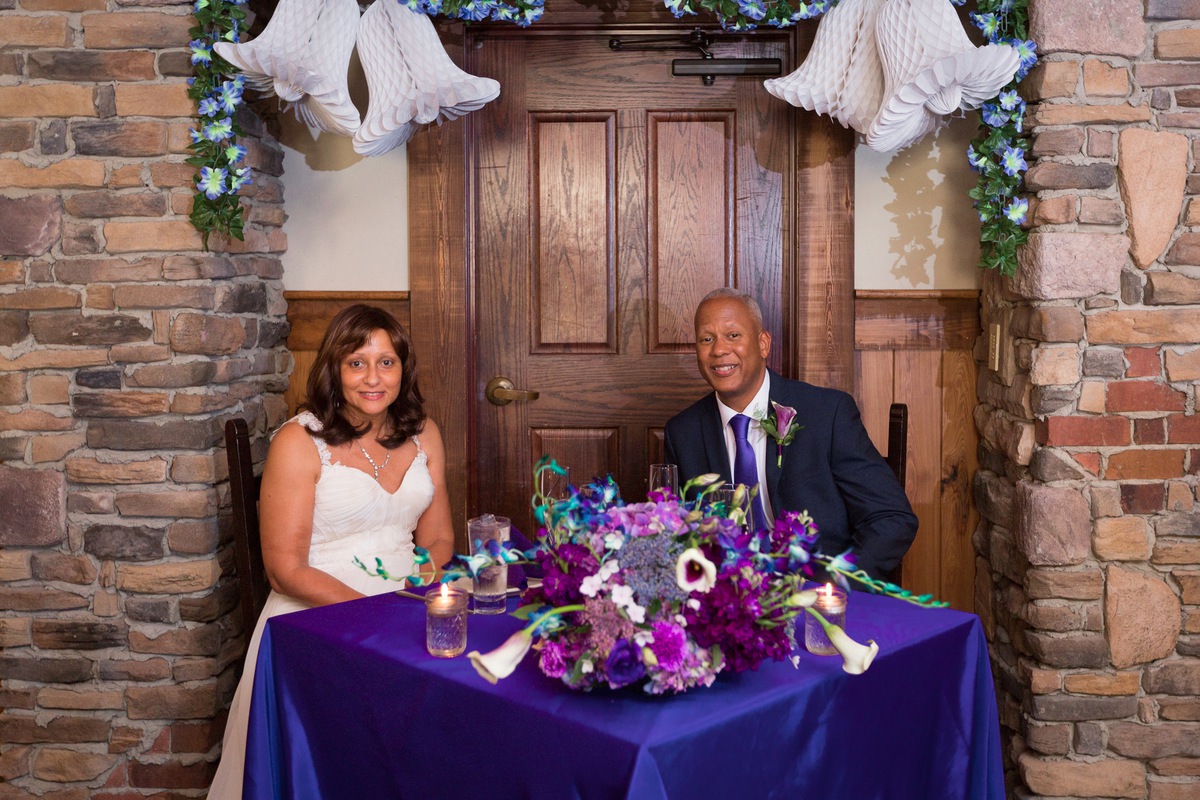
Couple unified through cancer, caregiver struggles
When a significant other is diagnosed with cancer, it can be just as hard on the loved one as it is on the patient. However, Stephen and Jackie Alston found themselves experiencing both roles when they were each diagnosed with cancer years apart.
As a physically active and recently-engaged couple, the diagnoses came as a shock. Jackie was diagnosed with leukemia in 2016, and Stephen was diagnosed with oral cancer in 2019. The pair married in June 2016 and count their blessings daily, saying their faith helps them keep them motivated and an active lifestyle keeps them going.
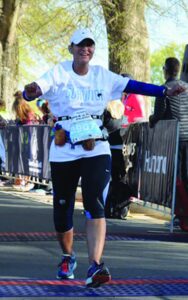
“I had too much to live for. I wanted to see my grandkids, and I was embarking on a new life with Steve.
I was not giving up. There was fight in me.”
—Jackie Alston
Parents, supporters create new fund for CAR-T therapy
Tom and Nancy Chewning have experienced cancer on a personal level, helping their daughter through a bout with breast cancer, as well as other family members and friends that have had the disease. They relied on UNC Lineberger for their daughter’s cancer care, and as donors, have given their trust and funding to the quality care and top-notch research going on at the cancer center.
Inspired by the potential of CAR-T immunotherapy in solid tumor cancers, the Chewnings established a fund at UNC Lineberger to support the work of Jonathan Serody, MD.
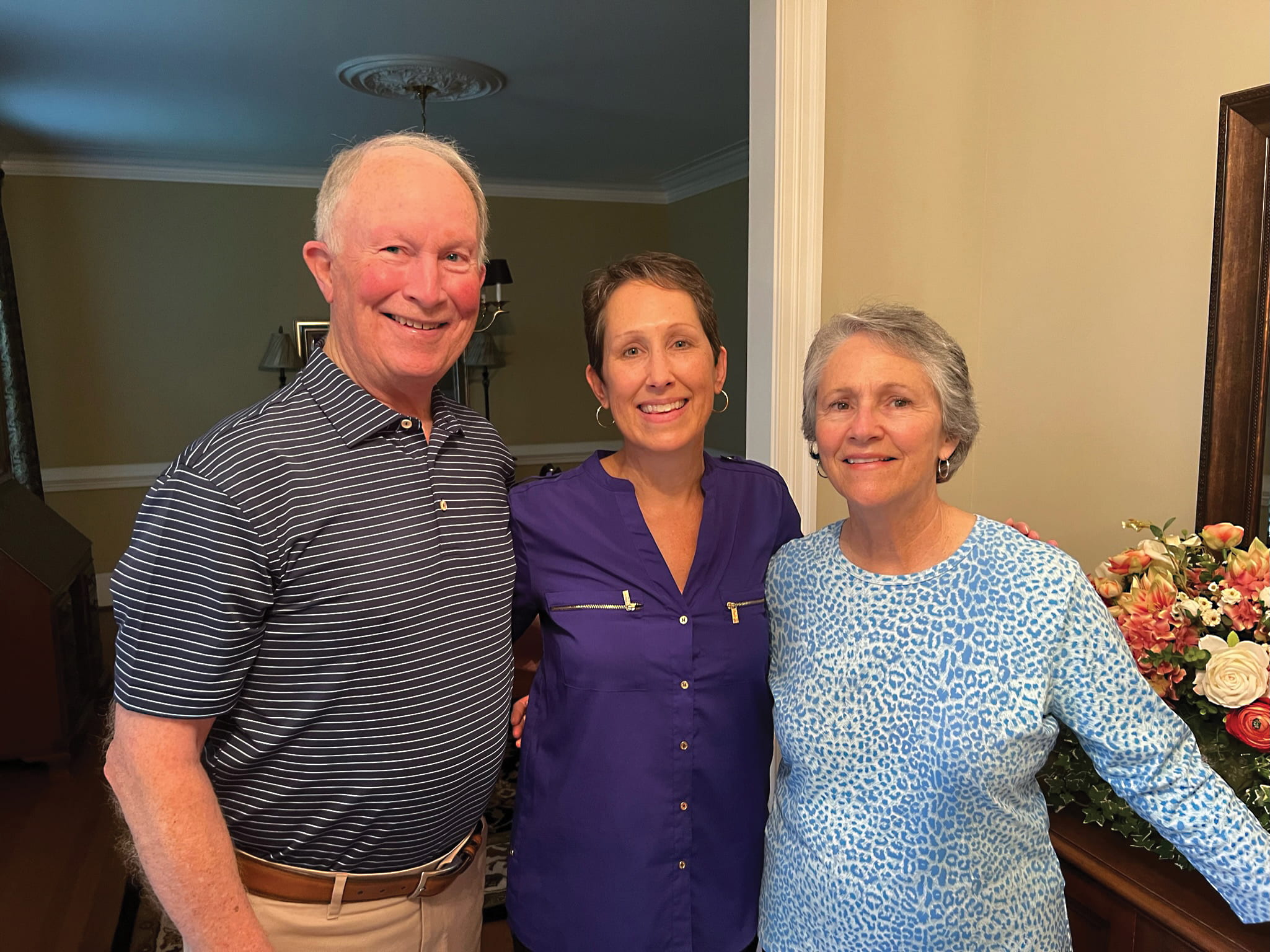
“Although early research funding has high risks, if successful, Dr. Serody’s findings could positively impact countless cancer patients around the world. How wonderful would it be that one day most cancers would be treated through use of our own immune systems!”
—Tom Chewning
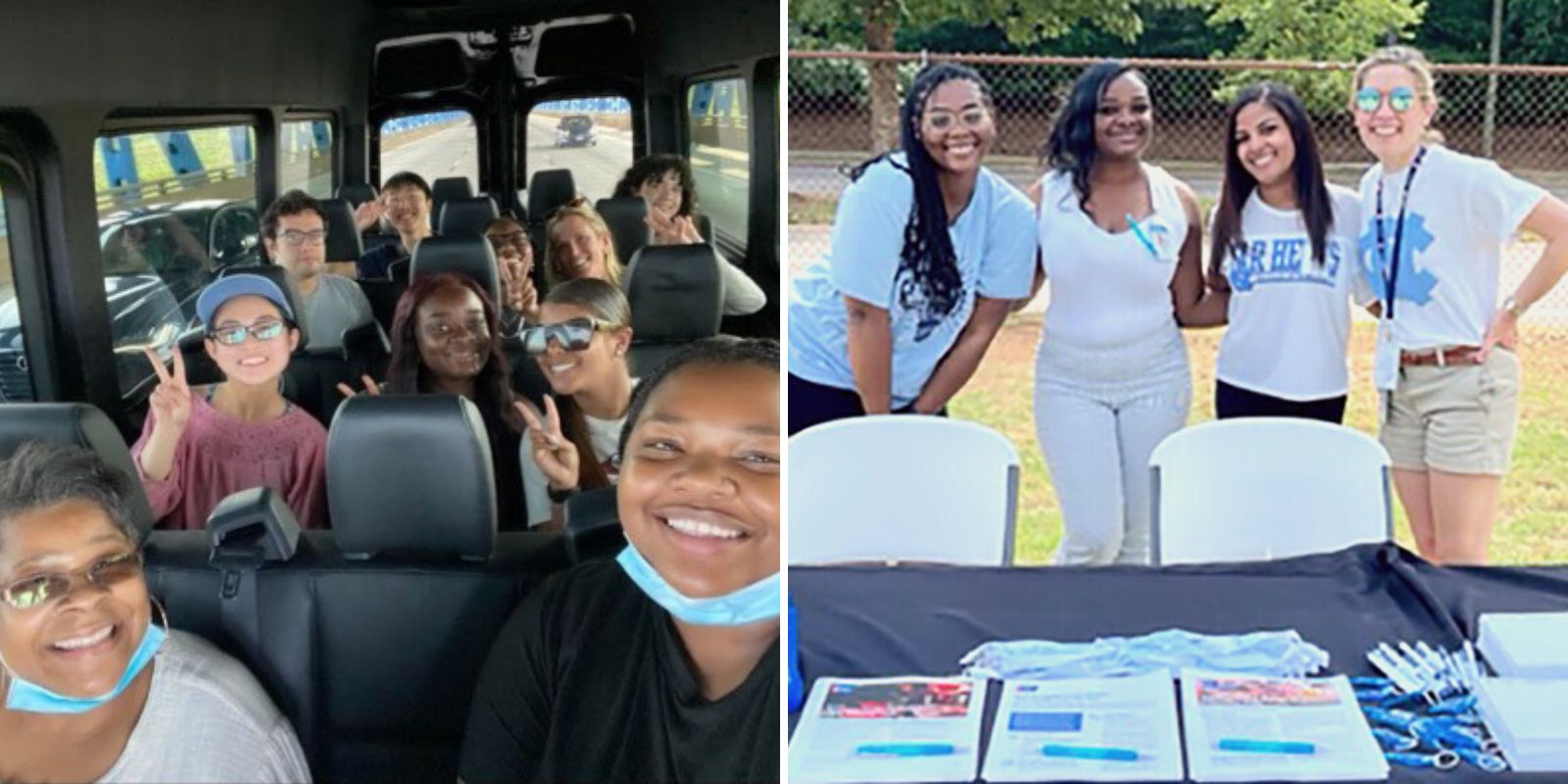
Internship focuses on building a more diverse, robust cancer research and care workforce
The UNC Lineberger and North Carolina Central University Clinical Research Summer Internship, a new partnership between UNC Lineberger and NCCU, provided an opportunity for five NCCU students to participate in the 10-week program at UNC-Chapel Hill to learn firsthand about clinical research and oncology careers as well as to conduct clinical research with their mentors.
The internship stemmed from UNC Lineberger’s Ashley Leak Bryant, PhD, RN, OCN, FAAN, and her interest in recruiting a diverse workforce and combatting clinical turnover, a problem linked to burnout and lack of engagement.
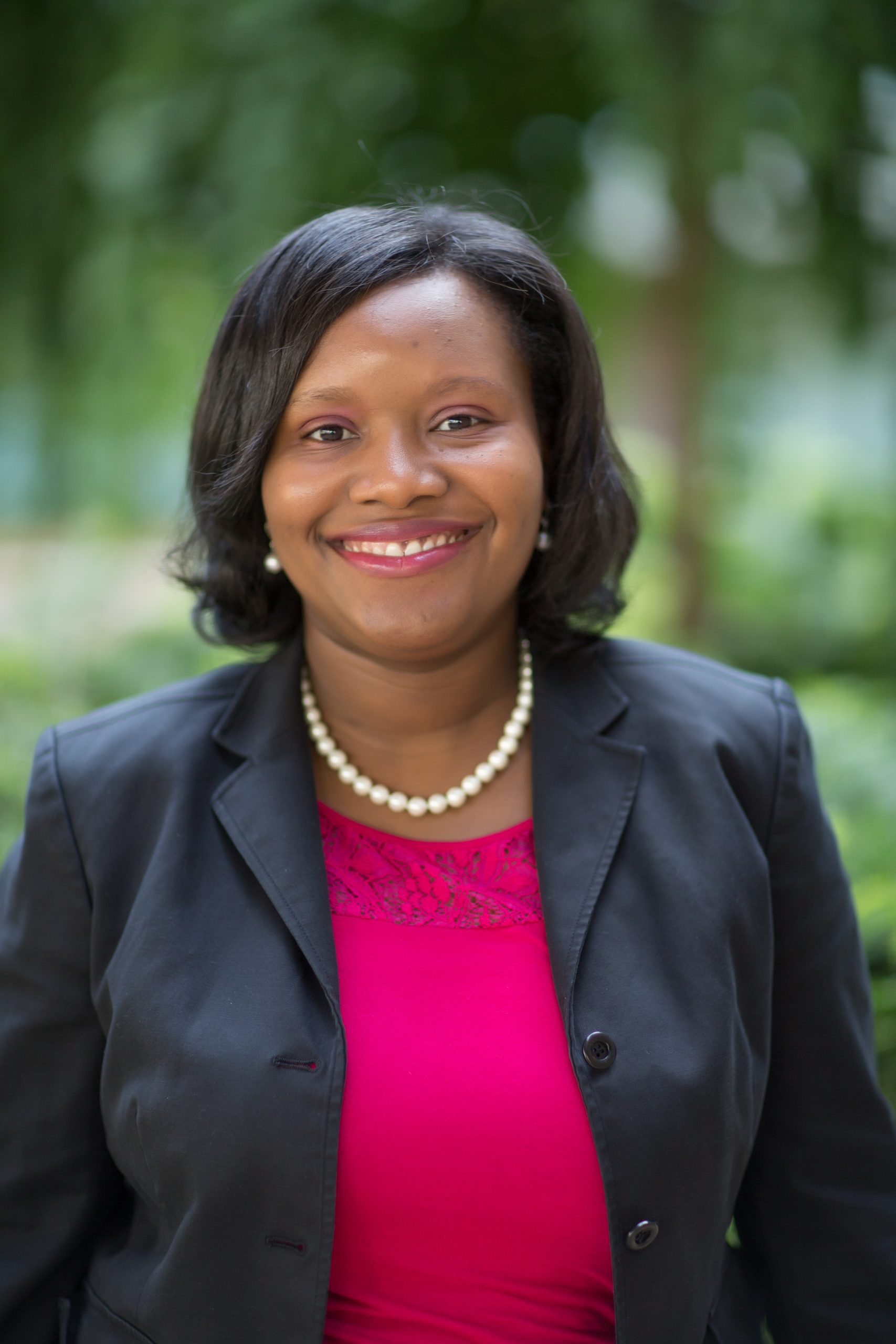
“We need a culturally sensitive careforce to meet the needs of individuals with cancer, families, and communities in North Carolina. UNC Lineberger is committed to increasing and retaining a racially and ethnically diverse careforce through intentional collaboration with meaningful impact.”
—Ashley Leak Bryant, PhD, RN, OCN, FAAN
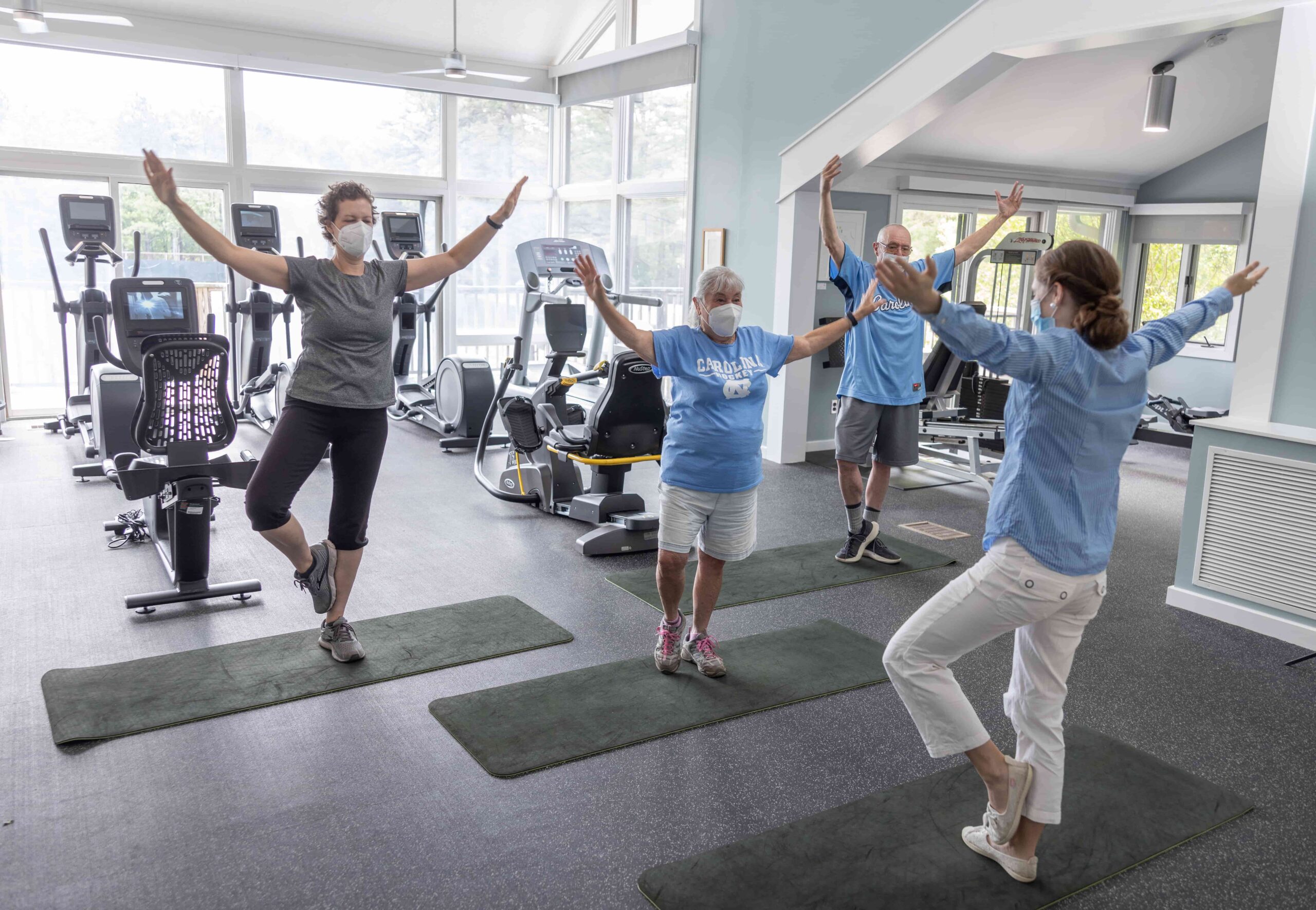
Get Real & Heel renovations fuel next chapter for program, cancer patients
On May 31, the Get Real & Heel facility reopened its doors to patients, friends and visitors, welcoming them back to a transformed space. The space features state-of-the-art equipment, updated locker rooms and an open-air concept that is a different look from the original.
Get Real & Heel is a free exercise program for cancer survivors at the N.C. Basnight Cancer Hospital.
“We’re excited to launch a new chapter for Get Real & Heel,” said Carly Bailey, MA, program director of physical activity and integrative oncology.
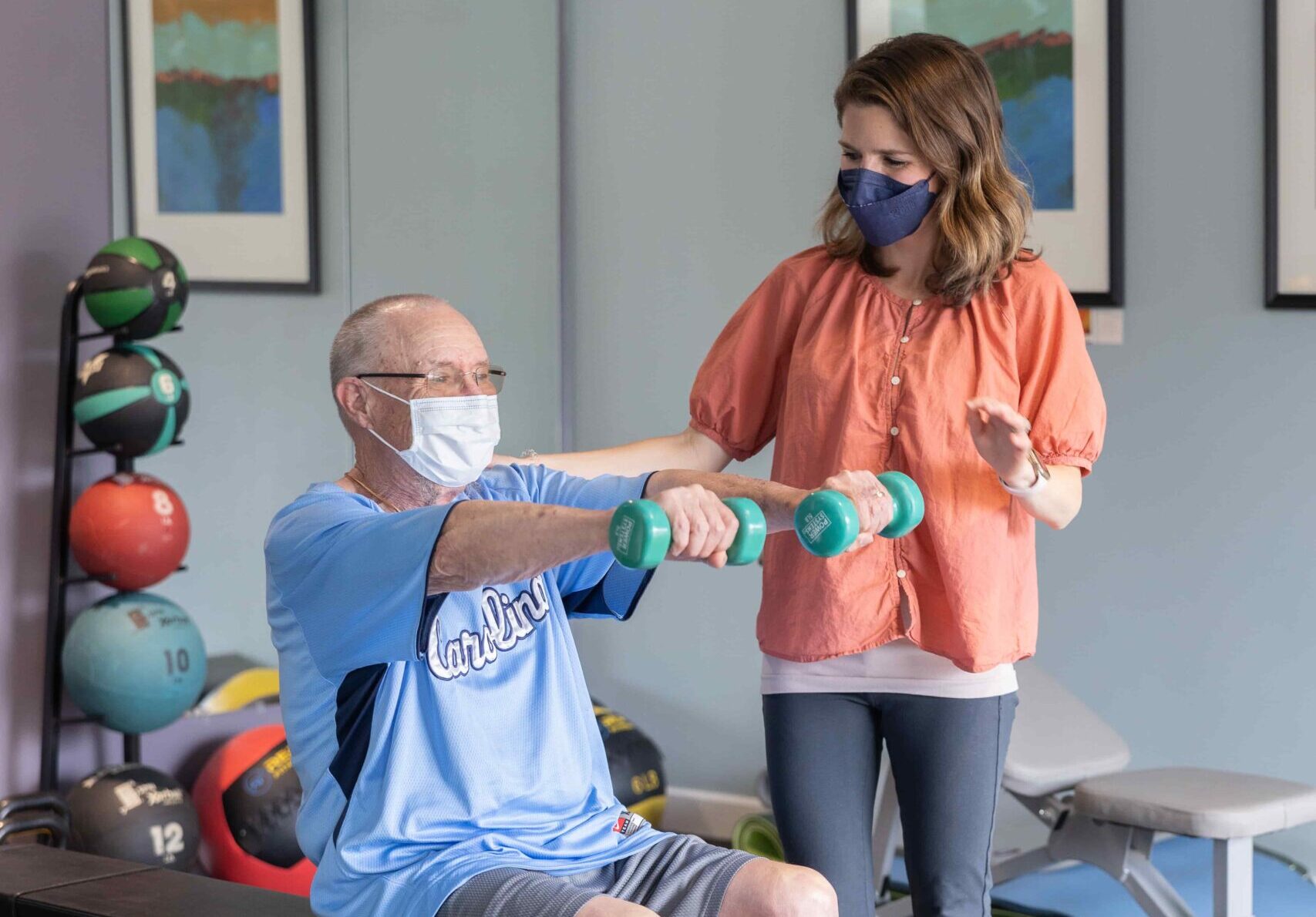
“We’re broadening the way we get people moving and having it feel more like a community that’s wellness minded and helping people come together and feel as well as possible after cancer treatment.”
—Carly Bailey, MA

Intervention reduces disparities in timing of lung cancer surgery between Black and white patients
Marjory Charlot, MD, MPH, MSc, and colleagues reported that a detailed analysis of intervention trials designed to address racial inequalities in timing from diagnosis to surgery for lung cancer showed a multi-faceted intervention resulted in timelier lung cancer surgery for Black patients.
Reported in February 2019, the ACCURE trial (Accountability for Cancer Care through Undoing Racism and Equity) implemented interventions at cancer treatment centers that helped eliminate disparities in treatment for Black patients with early-stage lung and breast cancers.
The current study, led by Charlot and colleagues, analyzed the benefits of the ACCURE intervention for patients with lung cancer by comparing three groups.
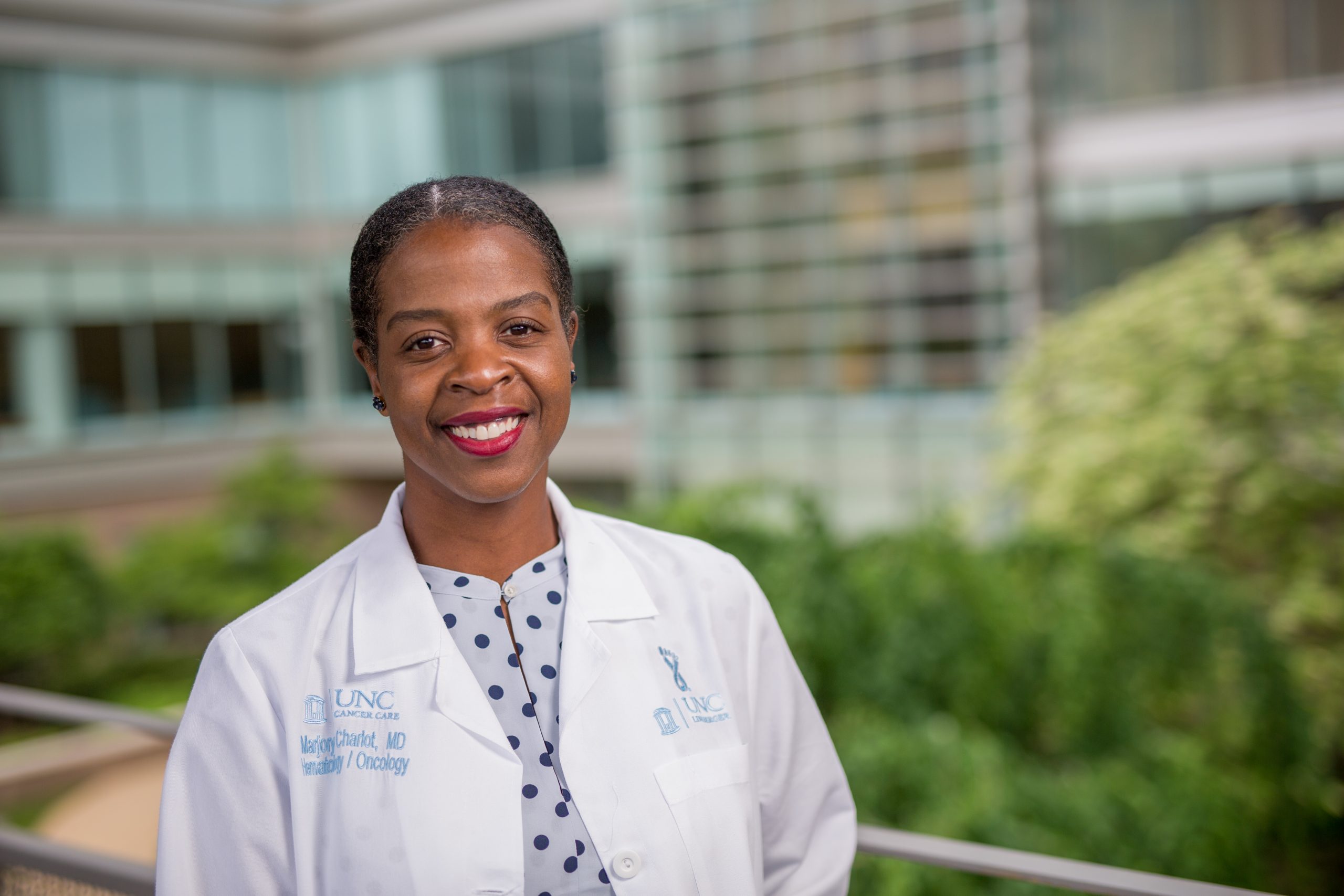
“Our findings demonstrate that racial inequities in care can and should be measured, and providers must be made aware of differential practices.”
—Marjory Charlot, MD, MPH, MSc
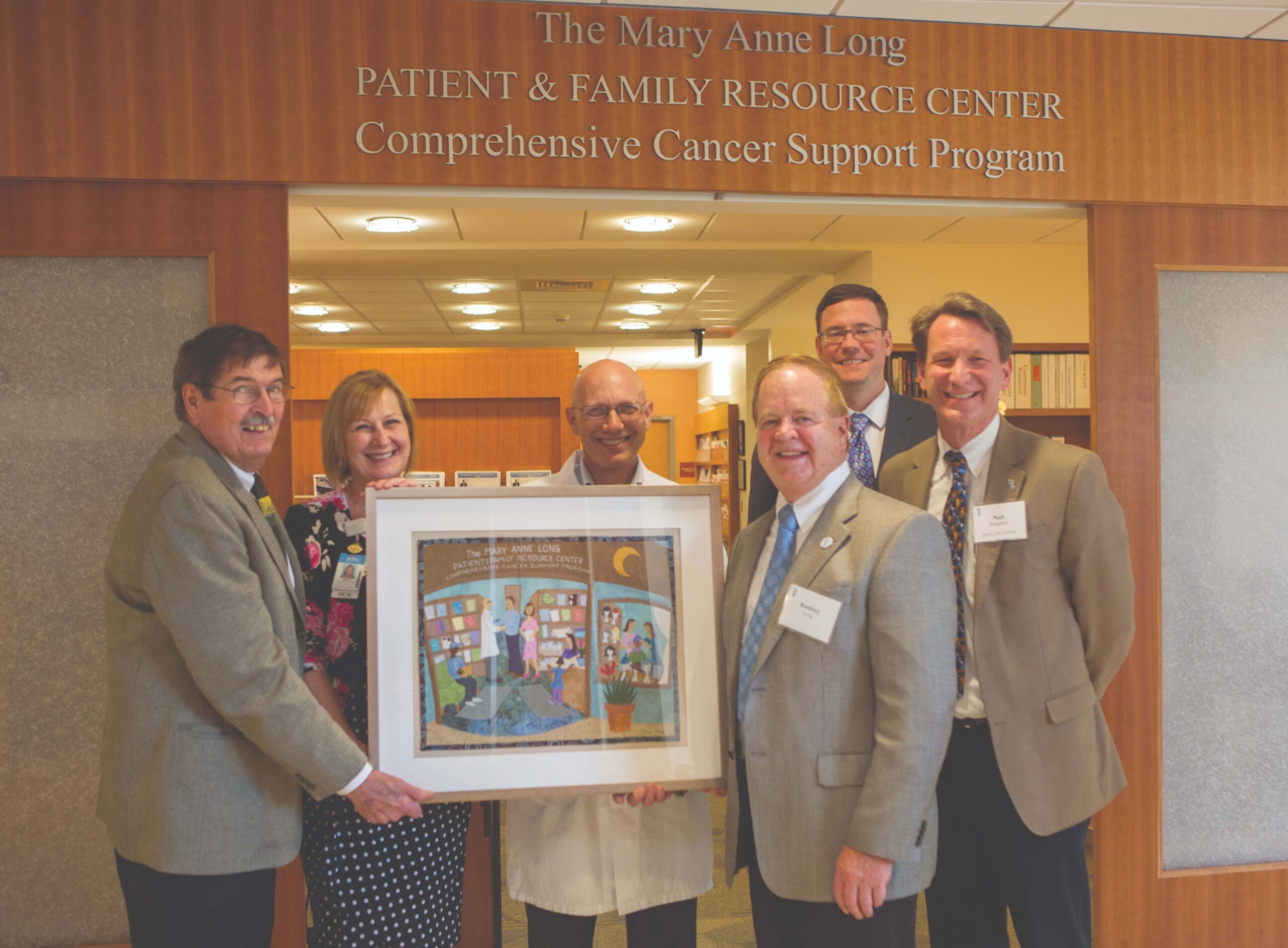
PFRC celebrates 30 years of service
For 30 years, the North Carolina Cancer Hospital’s Mary Anne Long Patient and Family Resource Center (PFRC) has offered patients and their families expert help, solace and friendly faces.
The PFRC is a key resource under the UNC Lineberger Comprehensive Cancer Support Program, which helps guide patients through every step of the cancer journey, from diagnosis to survivorship, and everywhere in between.
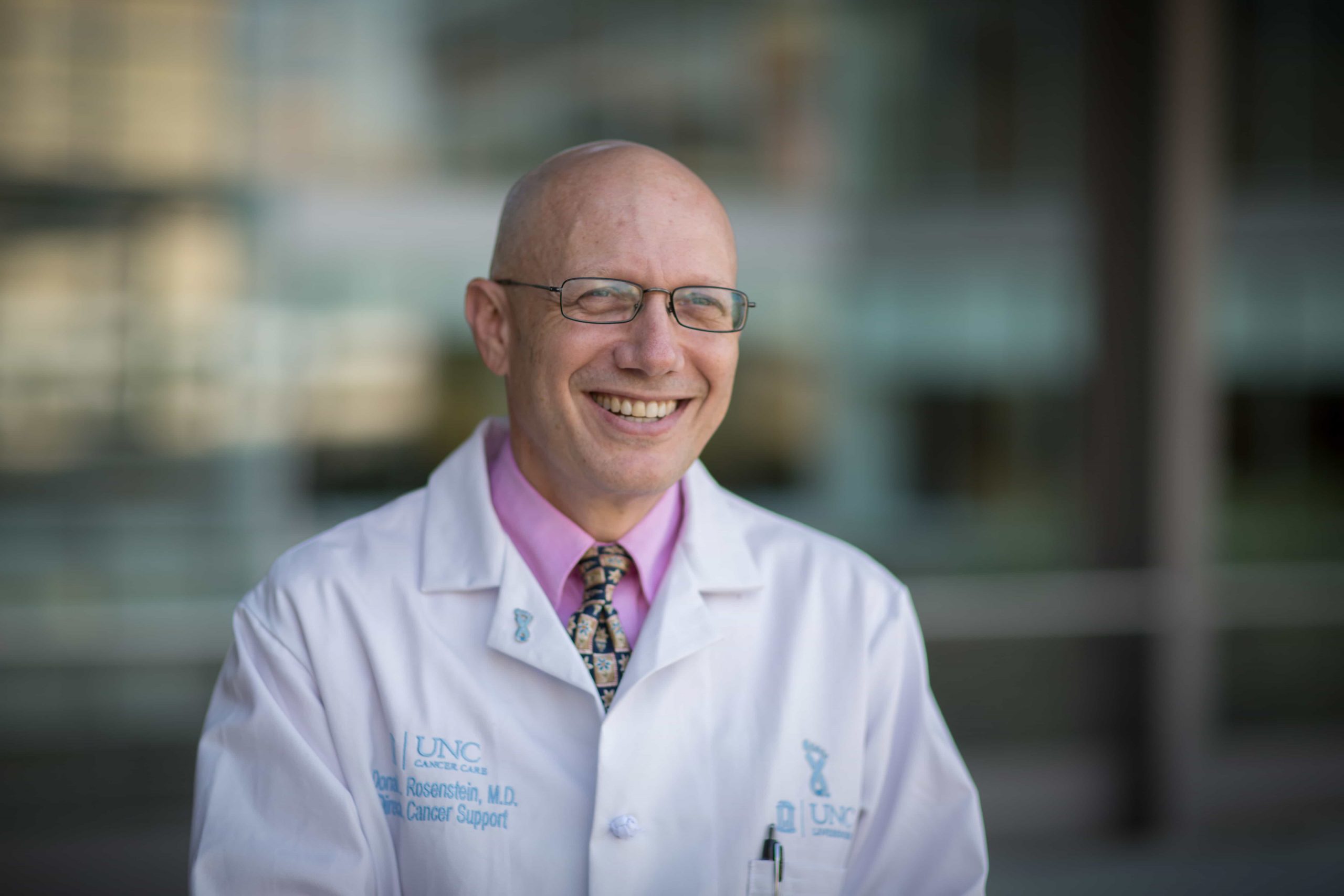
“The most special part of the PFRC has always been the dedication of the people who worked there. They are really passionate about patient care.”
—Donald Rosenstein, MD

Using telehealth to regularly report symptoms improved overall well-being for patients with advanced cancer
Ethan Basch, MD, MSc, FASCO, reported that people with advanced cancer who reported their symptoms weekly using an electronic survey had better outcomes compared to those who were evaluated less frequently via in-person clinical visits.
As part of the study, people with advanced cancer who communicated their symptoms weekly using an electronic survey had about a one-third better physical function and more than a 15% better control of their symptoms compared to those who were evaluated less frequently via in-person clinical visits. The findings come from a multi-state study conducted at 52 community cancer clinics.
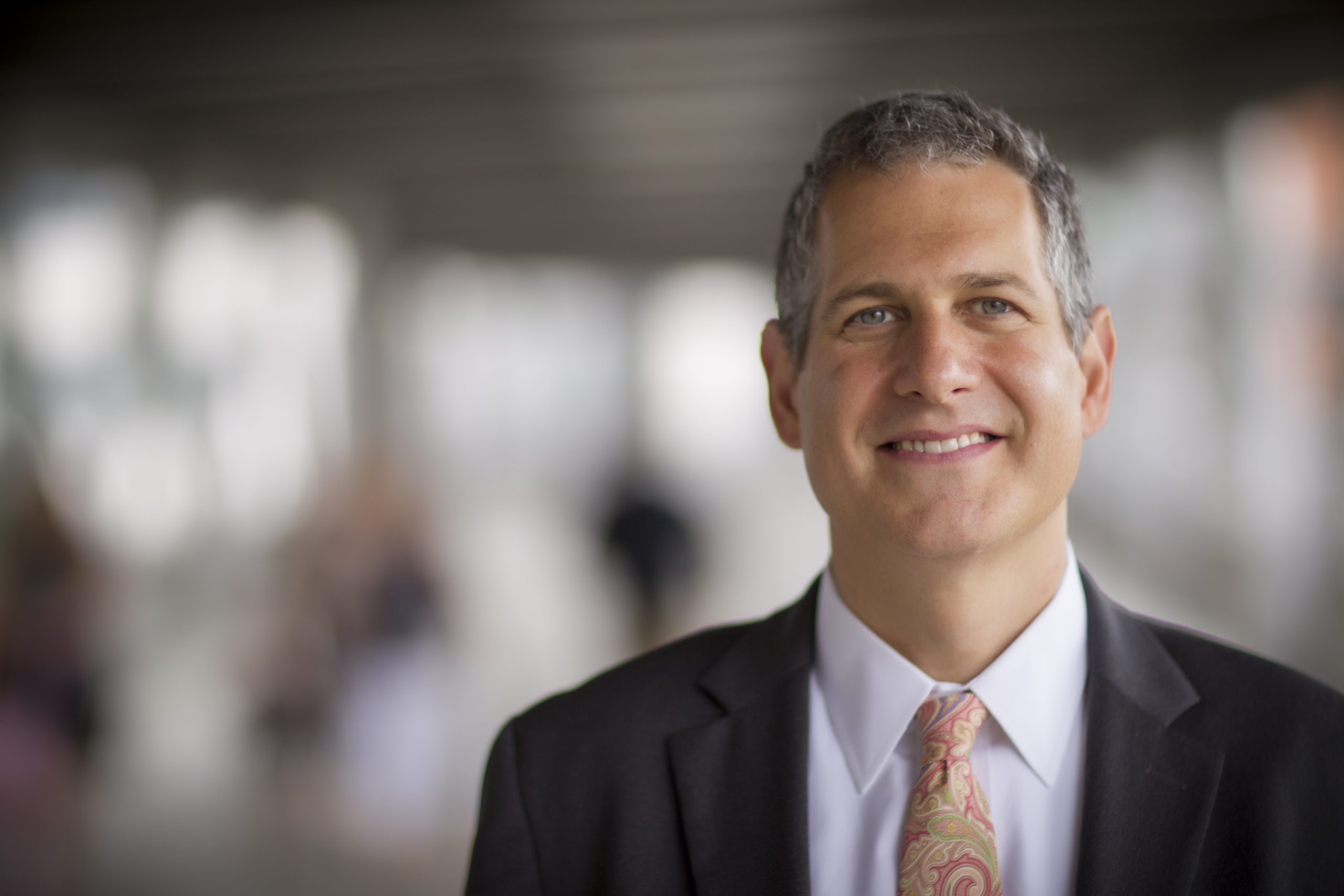
“[This approach] is a way to bring patients together with their care team and aids in identifying those who are at greatest risk. And because we had equal success at all 52 practices in 25 states, it shows that there’s a wide acceptance for this kind of intervention.”
—Ethan Basch, MD, MSc, FASCO
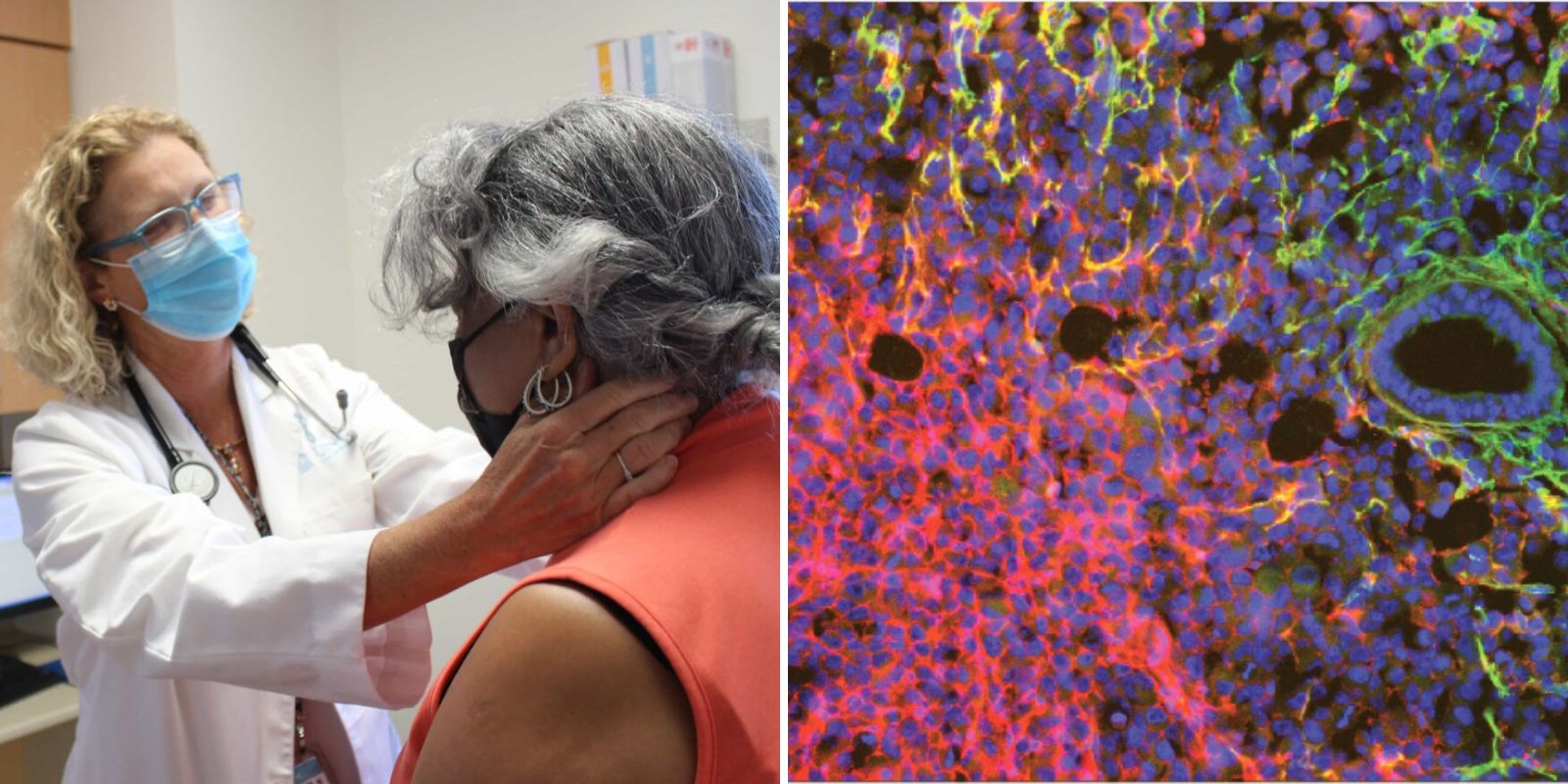
Donor gives $25 million to establish UNC Lineberger Center for Triple Negative Breast Cancer
An anonymous donor made a $25 million gift to establish the UNC Lineberger Center for Triple Negative Breast Cancer and to support other key UNC Lineberger initiatives.
This is the largest donation in UNC Lineberger’s history, and it enables the cancer center to advance its groundbreaking research on diagnosing and treating a highly aggressive breast cancer that disproportionately affects Black, Latina and young women and historically has limited research funding.
The gift was made in gratitude for the care a family member received while being treated for cancer at UNC, and to help expand and expedite the cutting-edge cancer research being conducted at UNC Lineberger.
Lisa A. Carey, MD, ScM, FASCO, will serve as the inaugural director of the UNC Lineberger Triple Negative Breast Cancer Center.
Read the full gift announcement
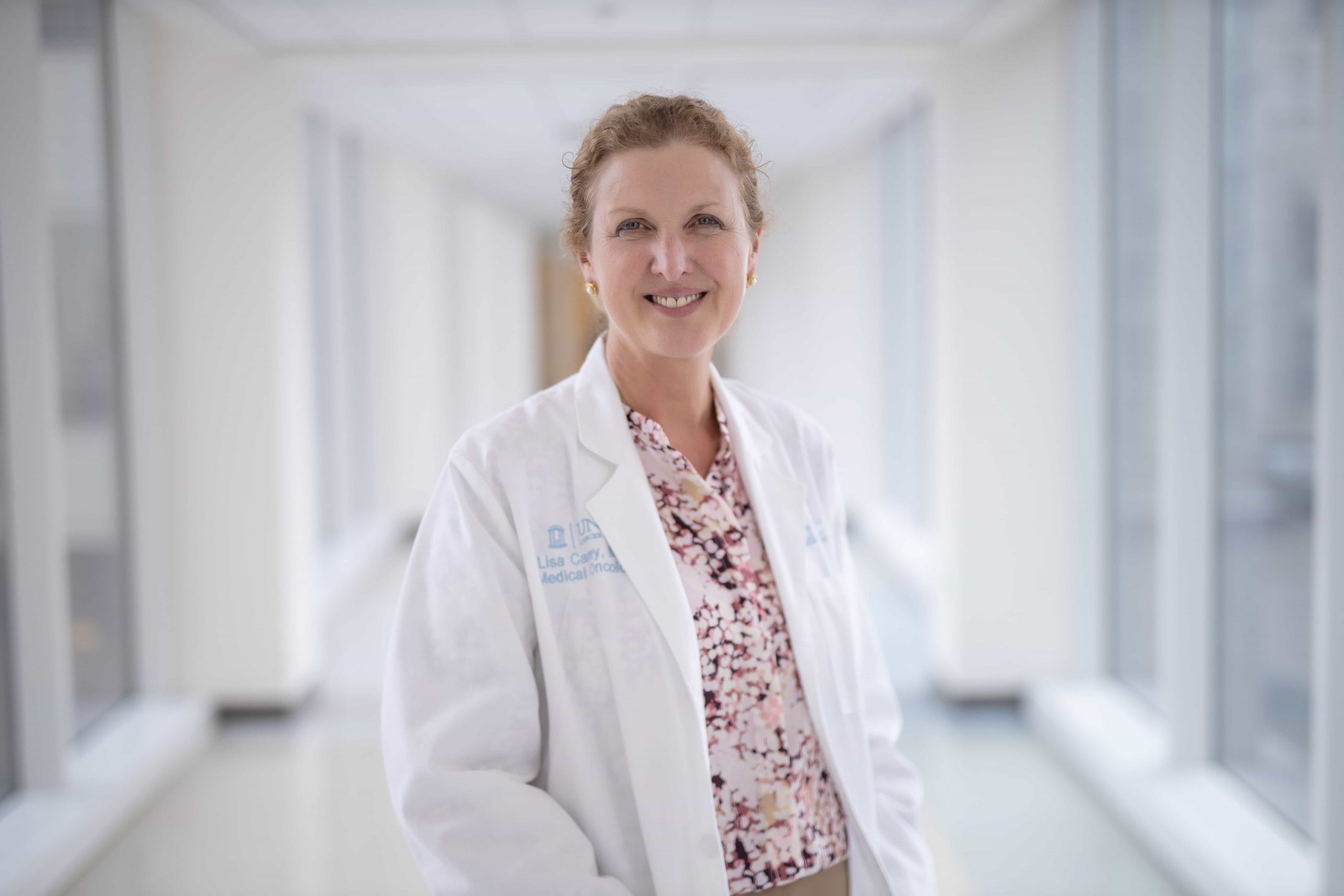
“While research advances the past 30 years have led to new and more effective treatments for many types of breast cancer, this isn’t the case with triple negative breast cancer. The good news is this gift will be a game changer. It provides the cancer center with the resources to expand and speed the pace of our research focused on generating insights that lead to better treatments and outcomes for women with triple negative breast cancer.”
—Lisa Carey, MD, ScM, FASCO
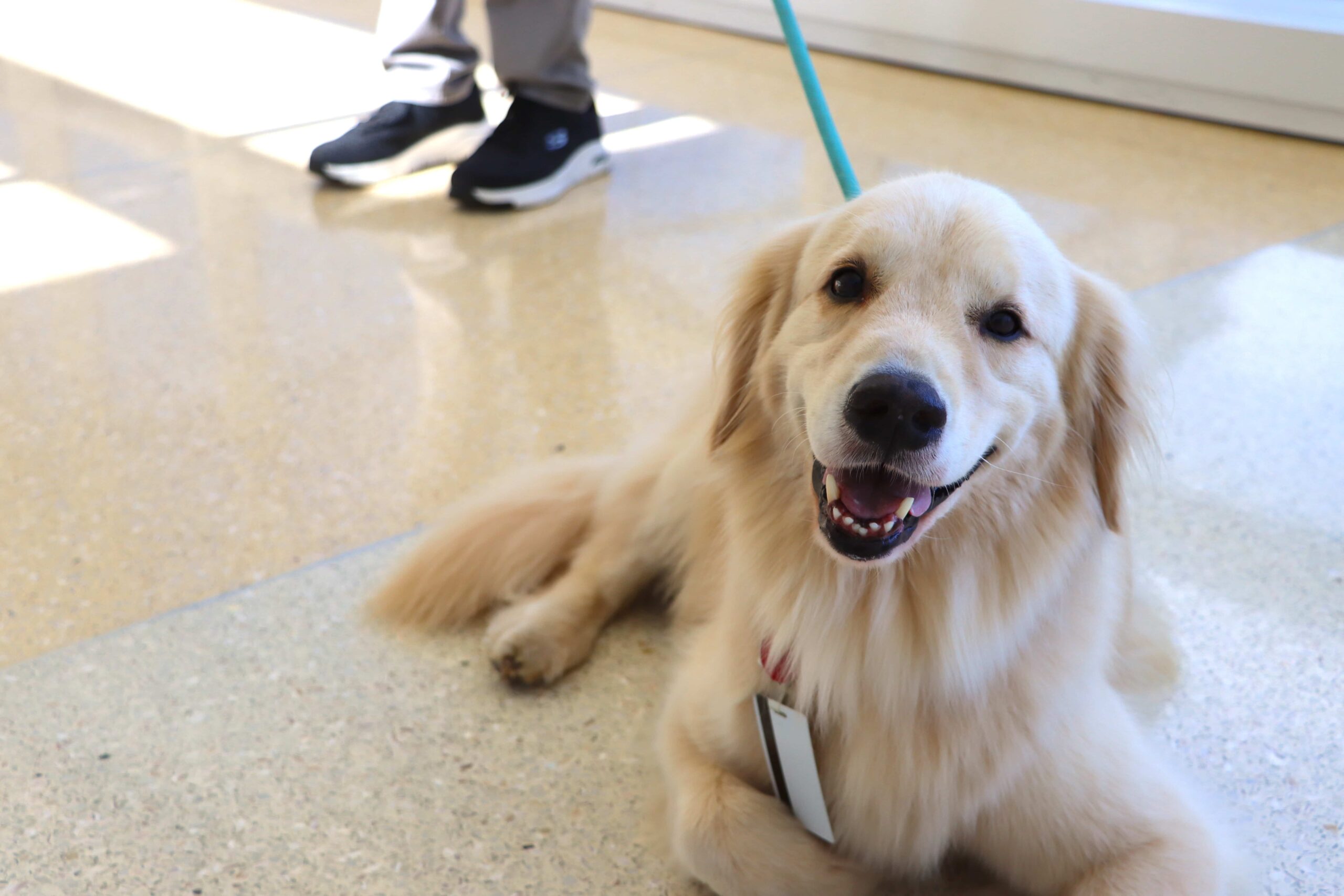
Four paws and a big heart: Therapy dog, handler spread cheer at cancer hospital
Who doesn’t love Cheese?
Nothing brings smiles to faces in the N.C. Basnight Cancer Hospital like four-legged volunteer Cheese, a Golden Retriever and therapy dog.
Cheese and his handler, Bill White, visit the hospital weekly to spread cheer and comfort to patients and staff alike.

